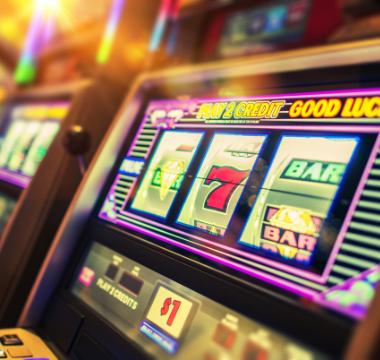New Study Examines Impulse Control, REM Sleep and Dopamine

Impulse control behaviors (ICBs) affect between 14% and 40% of people with Parkinson’s disease (PD). Examples of ICB’s include compulsive gambling or shopping, hoarding and hyper sexuality. ICBs become impulse control disorders (ICD) when they impair one’s ability to function at work, home and navigate day-to-day life. Only 2% of people have ICBs in the general population.
Why the dramatic disparity? It has to do with the gold standard medication for PD: Dopamine replacement therapy, such as L-dopa, as well as dopamine agonists, such as Requip (ropinirole), Mirapex (pramipexole) and Neupro (rotigotine), are all strongly linked to experiencing ICBs. This is because dopamine, in addition to relaying messages that plan and control body movement, also plays a primary role in the reward pathway in our brains ― in other words, it makes us feel good, even elated.
Since ICBs are commonly experienced as highly pleasurable ― and even anxiety-relieving ― people with ICBs may go to great lengths to hide their compulsions from friends, family and their healthcare professionals. Unfortunately, all too often, this concealment results in detrimental personal and financial consequences. There is a need to better understand the Parkinson’s-ICB connection.
A large, three-year, prospective, multi-center study published in Neurology titled, “Impulse control disorders in Parkinson disease and RBD: A longitudinal study of severity” (Baig et al., 2019) sought to address four key questions:
- What is the distribution and severity of PD-ICBs?
- How does this vary over time?
- How common are Parkinson’s ICBs?
- Which clinical factors are associated with PD-ICBs?
In this study, otherwise healthy people with ICBs were compared with those who had PD and a REM sleep behavior disorder (RBD). Why was REM chosen? Previous studies have suggested that the presence of RBDs may infer a higher risk of developing PD-ICD. However, it is not known whether RBD itself, or whether a particular RBD-PD subtype, increases that risk.
There were 932 PD participants in the study. Due to factors such as withdrawal and deaths, 531 completed the study. Those with RBD (and the control arm) were clinically screened for ICBs using the Questionnaire for Impulsivity in Parkinson’s Disease. Those who were ICB-positive were then invited to participate in a semi-structured interview, that was repeated every 18 months. Clinical assessments were performed with a variety of tools to assess a broad range of motor and non-motor symptoms at each visit. Severity of the ICB was assessed with the Parkinson’s Impulse Control Scale, and ICB prevalence and associations were mathematically calculated.
Results
- Impulse control behaviors were common in the early stages of PD (19.1% prevalence).
- There were no increased risks for having ICBs associated age, sex, cognition, sleep disorders or marital status.
- The incidence of depression was higher among participants with PD with ICD than those without.
- There was significant variation in the severity (both the impact and intensity) of PD-ICB – fluctuating within a relatively short period of time.
- Internal factors (mood and coping mechanisms) impacted the severity of PD-related Impulse control behaviors.
- External factors (major life events and social support) also impacted the severity of the PD-ICBs.
What Does This Mean?
This study found that ICBs are common in the early stages of PD, with a larger proportion of this population having symptoms of ICD, but not enough for the behavior to be designated a disorder. While scientists have known for over a decade that dopamine-related drugs could be linked to ICDs in some people with PD, it wasn’t until 2004 that people living with Parkinson’s began to learn that ICDs could be a rare side effect of dopamine agonists.
Thus, dopamine dosage changes may need to be considered, when ICB or ICD behaviors appear to be present. Lastly, people with PD, and their care partners, need to be aware that internal (mood and coping mechanisms) and external factors (major life events and social support) were found to be contributing causes for progressing from an impulse control behavior problem to a disorder.

Learn More
Learn more about Parkinson’s and impulse control issues in the following Parkinson’s Foundation resources or by calling our free Helpline at 1-800-4PD-INFO (473-4636):
For more insights on this topic, listen to our podcast episode “Clinical Issues Behind Impulse Control Disorders.”
Related Blog Posts

Treating Sleep Apnea May Lower Parkinson’s Risk

Top Parkinson’s Science News Articles of 2025
